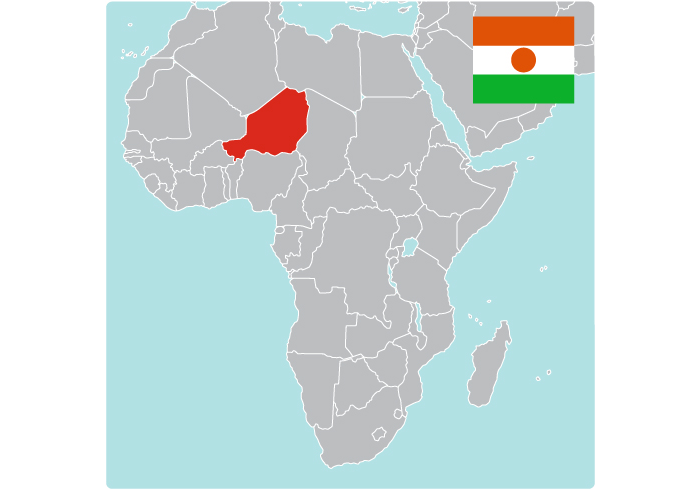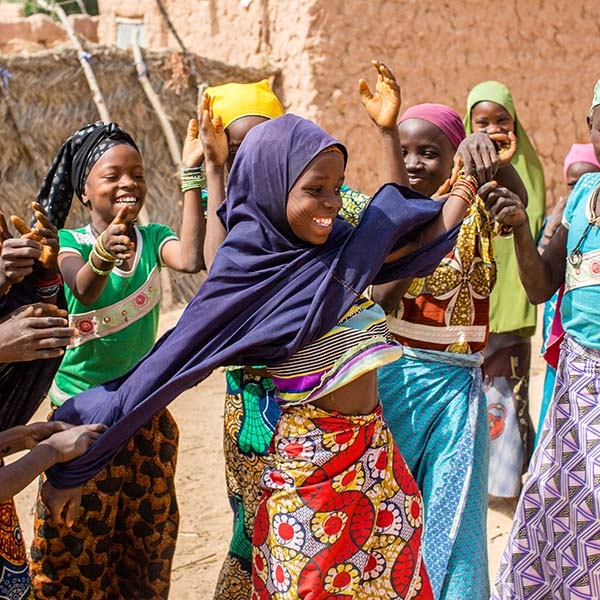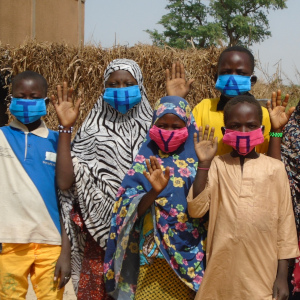Help Children in Niger
Niger, officially the Republic is Niger, is a vast, landlocked country on the edge of the Sahara desert. Following its independence from France in 1960, Niger fell victim to a series of military coups and political instability.
Today, Niger is one of the world’s least developed countries. Its largely subsistence farming-based economy is frequently disrupted by extended droughts, leading to severe food and water shortages. Nearly half the population lives in extreme poverty, with many families unable to provide for their children’s basic needs.
Niger is a country where childhood is severely threatened.
Challenges for Children in Niger
By every measure – from high child mortality, severe malnutrition and lack of education, to child labor, child marriage and motherhood, violence and poverty – children in Niger are facing challenges no child should. Niger’s children need your help.
-
1 child in 12 dies before their 5th birthday, 12 times the U.S. rate
-
49% of children suffer from stunting due to malnutrition
-
52% of children are out of school, with 34% engaged in child labor, instead of learning
-
64% of girls (ages 15-19) are married, and 1 in 5 gives birth – and 89% of girls (ages 15+) struggle to read and write
-
7 children in every 1,000 are murdered
-
45% of people live in poverty

Our Results for Children in Niger

Eleven-year-old Zeinabou (center) plays games with her fellow schoolmates in Niger, where more girls are getting a quality education, thanks to donor-supported Save the Children programs.
-
3,111,000 children healthy and nourished
-
192,000 children educated and empowered
-
93,000 children protected from harm
-
102,000 children lifted from poverty
-
852,000 children aided in crisis
Our Work for Children in Niger
Save the Children has been a leading charity for children in Niger since the food crisis of 2005.
We were there for children and families in need in 2017, when a combination of drought, economic shocks and conflict converged to erupt into a severe, multi-dimensional hunger crisis across multiple countries, including Niger, with many desperate people ending up in food insecure refugee settlements in Niger.
As well as emergency response, we run long-term programs to support health and nutrition, food security and livelihoods, education and protection for children in greatest need.
Working closely with local communities, we design programs to help vulnerable children from early childhood to early adulthood — giving them a healthy start in life, the opportunity to learn and protection from harm along the way.
Here are some recent examples of our work:
A healthy start in life
- We’re helping ensure babies are delivered safely, and that children receive lifesaving immunizations to protect them from killer diseases
- We're working with communities to improve health, hygiene and sanitation
- Emergency evidence highlights the importance of WASH in relation to improved nutrition, as demonstrated through our signature Clean Household Approach, in which we use effective behavior change, marketing and policy strategies to promote household behaviors that reduce the risk of childhood illness
- We’re involving traditional and religious leaders as important stakeholders in social and behavior change approaches – for example, in our LAHIA project, faith leaders supported our WASH programs
The opportunity to learn
- Our education programs help prepare toddlers and young children for school, transform primary school-aged kids into lifelong learners and provide children with disabilities accommodations in their schools
- Our work with adolescents focuses on that challenging transition between childhood and adulthood, helping ensure it’s a positive one by teaching them money, job and relationship skills
- We also provide health education and care to children in need through our school health programs to help children stay healthy, well-nourished and in school
- Children in our early learning programs make great intellectual and social gains later in life program for young adolescents, including developing a club activity guide
- We’re working to improve education with a focus on teacher training, literacy, numeracy and community engagement, with special attention on girls, in addition to renovating schools, providing essential supplies and promoting child-friendly policies
- Our livelihoods programs are helping families become more resilient in the face of seasonal stresses and economic shocks – as well as distributing livestock, seeds and fertilizers, we use cash transfers to boost local economies and avert food crises
Protection from harm
- We successfully used community approaches to address gender norms, notably with adolescents, to promote male engagement through our Model Husband School approach
Emergency response
- Our infant and young child feeding toolkit and programs are focusing on ensuring parents have the knowledge they need to breastfeed/feed their children under age 2, even in emergencies
How to Help Children in Niger
Donate
Support Save the Children’s mission. Donate to help children in Niger and around the world grow up healthy, educated and safe.
Join Team Tomorrow
Join Team Tomorrow and your monthly donation will go toward addressing the needs of children affected by today’s most urgent issues.
Browse the Gift Catalog
Give a meaningful gift that will help transform children’s lives and futures in Niger and beyond. There’s something for everyone!
Sources: Facts and statistics have been sourced from Save the Children’s monitoring and evaluation experts, as well as our thought leadership publications, including our Global Childhood Report 2020 and Stop the War on Children 2020 report. Other sources include CIA World Factbook and BBC Country Profiles.
Photo: Victoria Zegler / Save the Children.
Thank you for signing up! Now, you’ll be among the first to know how Save the Children is responding to the most urgent needs of children, every day and in times of crisis—and how your support can make a difference. You may opt-out at any time by clicking "unsubscribe" at the bottom of any email.
By providing my mobile phone number, I agree to receive recurring text messages from Save the Children (48188) and phone calls with opportunities to donate and ways to engage in our mission to support children around the world. Text STOP to opt-out, HELP for info. Message & data rates may apply. View our Privacy Policy at savethechildren.org/privacy.



